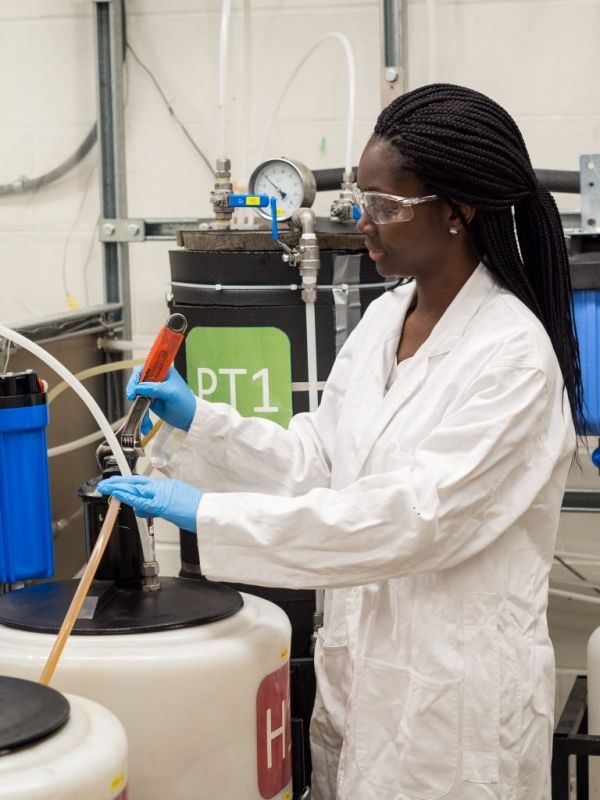Whether it’s French fries on the menu or an entire deep-fried turkey, disposing of used cooking oil can be a headache. Only a small amount of it can be composted, and dumping the rest down the drain can result in blocked pipes. For university food services departments tasked with preparing food for thousands of students, the challenge of disposing used cooking oil is exponential.
Onyinye Ofulue, a chemical and biological engineering student with a passion for sustainability, has been helping tackle that challenge for her past three years at UBC. She joined and led a small student team—the UBC chapter of Engineers for a Sustainable World, or ESW—that collects waste cooking oil from UBC Food Services and converts it into a fatty acid-based fuel known as biodiesel, which can be used as fuel for diesel-powered vehicles.
“First, we clean up the oil at our lab in the chemical and biological engineering building, using physical oil filters to remove food particles,” explains Ofulue. “Then we convert the oil using a process called transesterification, using methanol with potassium hydroxide as a catalyst. We’ve processed over a thousand litres of oil and produced more than 250 litres of the biodiesel so far and it’s been used by one of the UBC housing services trucks that serve the campus.”
To ensure the safety of the students handling the biodiesel, Ofulue led the revisions of work procedures for operating the reactor and other equipment used to convert the waste cooking oil. She also ensured that the team members received adequate training for work safety.
Continue reading at University of British Columbia.
Image via University of British Columbia.


